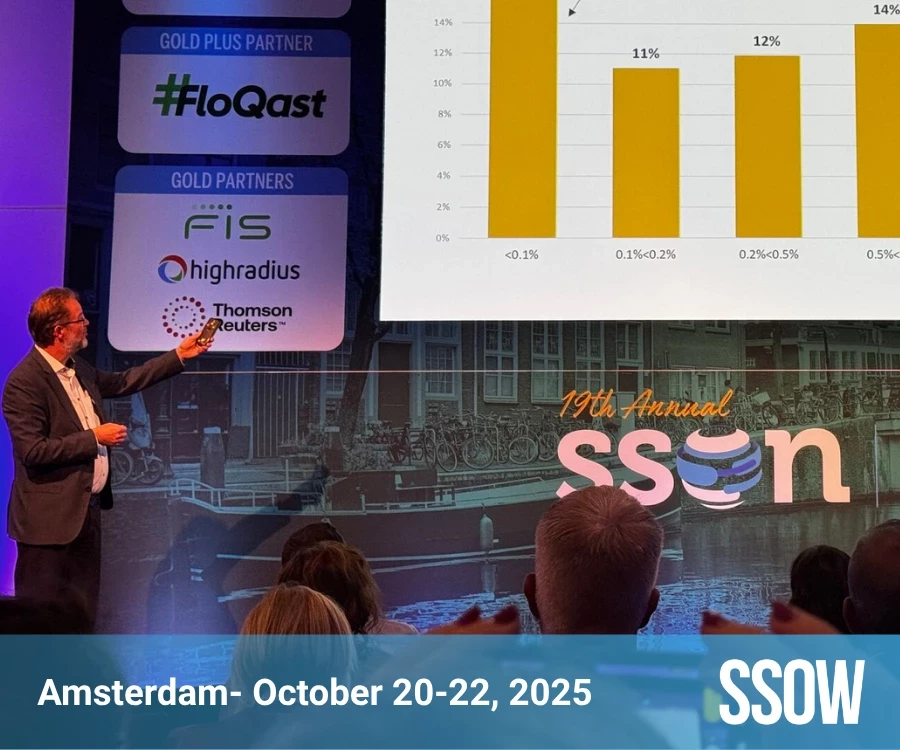
Nearshoring, Risk, and Resilience: Ask the Expert
Agentic AI, Tariffs, the Back-to-Office debate, there are a myriad of trends shaping the business world in 2025. But how are they impacting the Global Business Services space? Are they world-defining or something that will pass us by? At the Shared Services and Outsourcing Week Europe 2025, SSON spoke to some of the world’s best Global Business Services leaders about their take on big business trends.
This time, we sat down with Steve Rudderham, Head of Global Business Services at Carrier, and Chairman for the Shared Services and Outsourcing Week Europe 2025, to get a clear view of how one of the world’s leading companies is adapting to geopolitics and global disruptions that are redefining the rules of business.
Geopolitical tensions are rising. How are they affecting GBS decisions around nearshoring and reshoring?
The shifting geopolitical landscape is introducing more risk into location modelling. On this point, Rudderham shared that “there’s so much going on that longer-term strategic decisions are becoming harder to make. Where there are clear no-go’s, think Russia or Ukraine, where trade embargoes are in place, those decisions become straightforward.” However, for other regions, calculating this type of risk is getting more complex. GBS leaders are having to account for political and economic instability in ways that weren’t front of mind before. Rudderham adds to this point, stating that he sees GBS functions building more risk into their modeling now in light of this.
How should GBS organisations adapt their sourcing and delivery models in response to those rising geopolitical tensions and the increased push towards nearshoring?
From Rudderham’s experience of living in the United States, he has seen these discussions carried out frequently. He shares that “from a shared service standpoint, we need to ultimately make sure we've got access to the people and the data.” We deal with important decisions about where to locate a shared service centre and need to evaluate whether the right talent can be accessed and whether their data access is maintained. Rudderham points to how quickly things can change, citing the Russia-Ukraine war as an example. “Overnight, we saw where the route by which the organization had access to people and systems was cut off… and then there was a long period of getting their shared service centers set up again across the border in the EU, in order to serve European clients.” This means that planning and resilience should be a priority, and GBS need to consider these factors when making their location decisions.
What criteria should GBS leaders use to assess and prioritise nearshore or onshore locations?
Rudderham noted that “Real-time information is going to be key in this assessment.” He shared the advice that GBS leaders should not be afraid to ask for help, recommending that they leverage insights from external firms that specialize in risk intelligence. Rudderham shared that he has leveraged specialized firms, like Supply Wisdom, who offer real-time geopolitical risk assessments for countries around the world, which has been a key enabler in decision-making.
How can GBS leaders mitigate these growing geopolitical and economic risks?
For Rudderham, it goes back to the sentiment of not doing it alone; he stated that “there’s a lot more risk being baked into our thinking now.” With lots of GBS leaders asking questions such as, ‘what about if there is another conflict, or geopolitical tensions?’ Rudderham recommends leaning into the real-time data from the experts to stay ahead of these scenarios that are out of everyone’s control. To gain more excellent insights from our SSO Network, don't miss out on our upcoming Shared Services and Outsourcing Week Autumn.





























